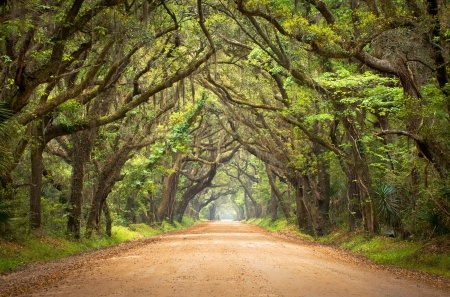From the Editor:
As romantic as some writers make the Antebellum period of the South sound, the words they pen are perhaps analogous to the veil of Spanish moss dripping from live oaks that surrounds and blankets tranquil antebellum mansions – protecting their secrets, hiding their stories, veiling their history. The cast of characters we equate with the Deep South were real people, living real lives – some enjoying wealth and luxury, some just struggling to make a living, others suffering the tortures of servitude. No matter who they were, or from where they hailed, each and every one was a part of a family – coming from a rich legacy and generating descendants who, for some of us, create or fulfill our own genealogy story.
South Carolina, along with other Southern states, claims a complex and complicated history to be sure. It is not our job as genealogists to judge history by today’s standards; that would serve no purpose. Rather, what we do as family history researchers is to help you maneuver your way through the thick kudzu of historical records, in order to find your ancestors, and with them the answers to questions you may have.
Genealogist Debra Hutsell welcomes you to grab a sweet tea and join her under a live oak. There, y’all may take a peek behind the genealogy tapestry veil to reveal the real history of South Carolina. ~ Nancy Siddons-Daniels
Searching for Ancestors Who Were Slaves
During the Antebellum period, which ranged from 1784 to 1860, South Carolina found itself at the intersection of economic survival and slavery. Slavery grew exponentially to the success of the rice crop and culture.
Slavery can pose difficulties for genealogists, since the slave trade was constantly mobile, and many slaves did not have a surname. Court records can shed some light on the search for your slave ancestor, since slaves were considered to be property. During the Antebellum period, there were three courts: common pleas, probate, and equity. The equity court holds a miscellaneous group of records, such as bonds, mortgages, court actions, guardianships, and powers of attorneys. The South Carolina Archives stores many of these records on microfilm; however, there is an online database known as the Digital Library on Slavery that may prove helpful when searching these records. With the information found in the Digital Library on Slavery, genealogists can continue to search for further information through the South Carolina Archives.
Searching for Ancestors Who Served in the Military
If you look closely at that live oak that we are sitting under, you might see the scars of past wars imbedded in the tree. South Carolina played a critical role in the American Revolutionary War, as well as the American Civil War.
As one of the original 13 colonies, South Carolina found itself embroiled in many battles and skirmishes during the Revolutionary War. The soldiers who fought in these battles have been recorded for future genealogists in such online sources as the South Carolina Department of Archives & History and the Southern Campaign Revolutionary War Pension Statements & Rosters.
About a hundred years after the American Revolution, war erupted again; the first shots of the Civil War could be heard at Fort Sumter in Charleston Harbor, and South Carolina was one of the first states to secede from the Union. The efforts of these soldiers were recorded in a ledger located in the Richland Library in Columbia, South Carolina. Genealogists will find research a little easier using the online database Confederate Rolls of South Carolina.
Searching for Ancestors Using Cemetery Records
Magnolia Cemetery, on the National Register of Historic Places, is a silent city inhabited by live oaks and memories. The Spanish moss dangling from the branches lends an eeriness to the oldest public cemetery in Charleston. It is the final resting place for many southern politicians and military leaders, as well as planters, bootleggers, and more than 2,000 Civil War veterans. The South Carolina genealogist can find just about anybody who died in Charleston, South Carolina, in the last 150 years in Magnolia Cemetery. A quick search of Find A Grave usually reveals the information that any genealogist is seeking. While you’re on the site, gaze at some of the images depicting the artistry of the tombstones. I confess I am afflicted with taphophilia – a passion for cemeteries. I think most genealogists suffer from this affliction, and Magnolia Cemetery is a truly beautiful cemetery to wander through.
In addition to Magnolia Cemetery, South Carolina is home to three national cemeteries, which can be accessed at the U.S. Department of Veteran Affairs.
The shadows are growing long and the evening breeze is causing the Spanish moss to do an eerie little dance. As you trace family history, you may encounter the veil of the South’s history. Don’t let it obscure your vision of finding your South Carolina ancestors. Contact the professional genealogists at RecordClick.
Additional South Carolina Links for the Southern Genealogist
Resources
PBS, Africans in America – Resource Bank, Part 4: 1831-1865 (http://www.pbs.org/wgbh/aia/part4/4p2956.html : accessed 10 November 2013), “Conditions of antebellum slavery 1830 – 1860.”
South Carolina’s Information Highway (SCIWAY) (http://www.sciway.net/afam/slavery/population.html : accessed 10 November 2013), “South Carolina – African-Americans – Slave Population.”







